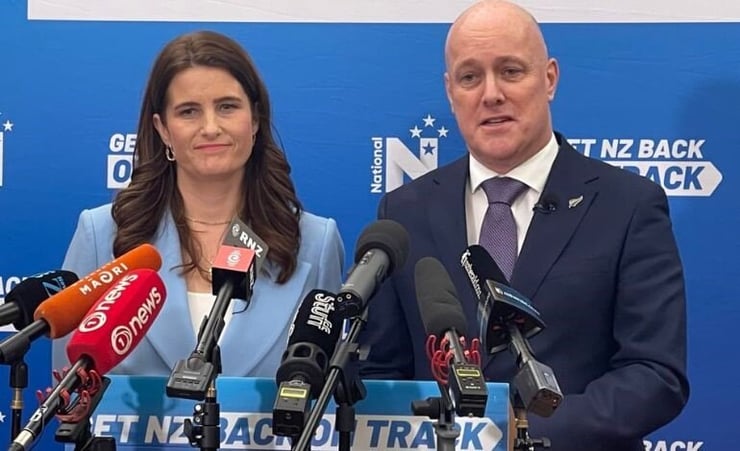National's tax plan would require big changes to the tax system - KPMG

The National Party's pre-election tax policy will mean significant changes for the tax system, which would be difficult to implement within the proposed timeframe.
KPMG tax partner Rachel Piper said the policy would require significant changes to the tax system.
Changes to take effect from next July, would include a review of tax thresholds, with the top 39 percent tax rate for people earning more than $180,000 a year to remain in place.
Piper said that was a positive change as the current tax brackets had not been reviewed for several years.
A number of additional measures were intended to provide tax relief for families, such as a child tax credit of up to $150 a fortnight for family earning up to $140,000 a year.
Rental property owners would see the bright-line test rolled-back to two years, while interest deductibility against income would be phased back in over the next few years.
Piper said that a phased-in approach was unexpected as many investors thought the interest tax deduction would be fully restored from next year.
National also confirmed that it would restore the bright-line exemption for main homes.
National's plan to remove the tax deduction for commercial building depreciation, while in line with Labour's policy, disappointed the Property Council.
The policy was expected to save the Treasury about $525 million a year, however council chief executive Leonie Freeman said it was a short-sighted policy.
"The proposed policies to remove depreciation are a raid on long-term maintenance funds for New Zealand's buildings, running the risk of rundown or even derelict buildings across the country," Freeman said.
"If depreciation is removed, property owners tell us they will have to reprioritise expenditure, which when added to rising costs such as insurance, mortgage and property rate rises, will likely cause rent rises for businesses."
Piper said both major parties were using commercial building tax depreciation as a cash cow.
"This does nothing for investment certainty," she said, adding the policy appeared to be at odds with National's position announced in March, which would ensure Build-to-Rent developments were eligible for depreciation deductions like other commercial buildings.
"Particularly for commercial buildings. They are a long term investment, a significant investment - and therefore that certainty, not just for one or two years but over the period of that investment," Piper said.
She said a new foreign buyer tax of 15 percent on properties over $2m appeared to be similar to a stamp duty.
"There are a range of design considerations that will need to be worked through," she said, such as who would be paid the tax - buyer or seller.
National's plan to close a gambling tax loophole for online casino gambling operators would also require some policy work, with a number of complex issues to be worked through.
"If this (tax) policy came in in its entirety, there are going to be significant changes to our tax system," Piper said.
"There are going to be changes to residential rental property rules winding back some of the changes that were made under the Labour government.
"There's an awful lot that people are going to have to get their heads around as if this does come in."




